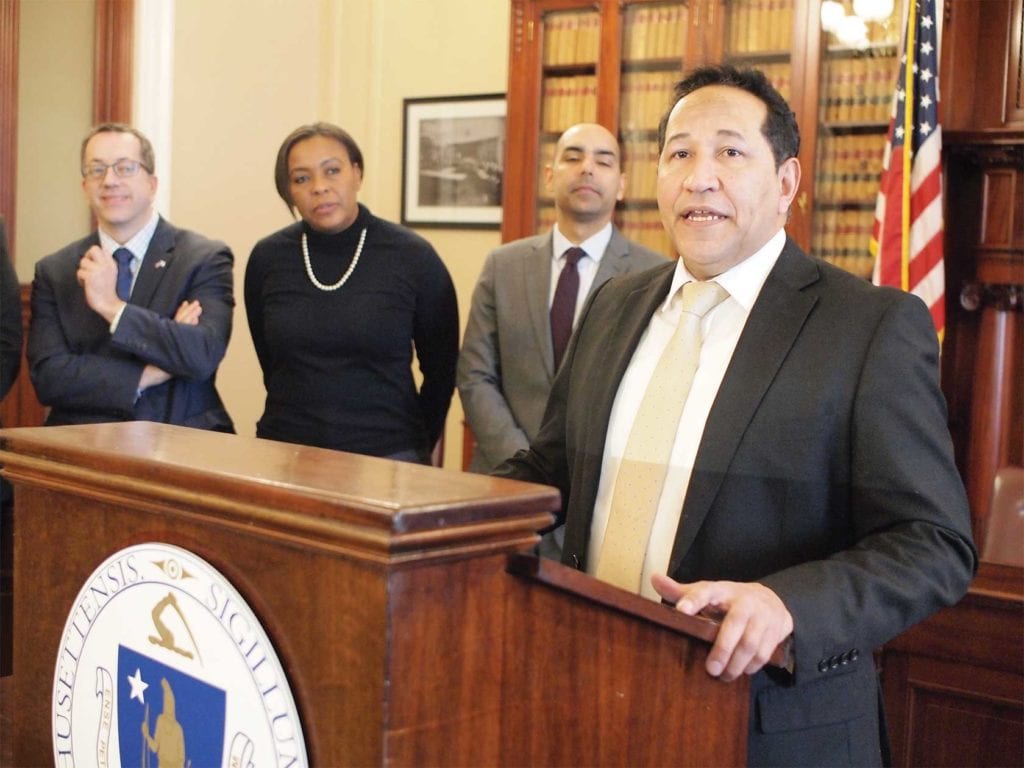
Walk into the business district of any predominantly black or Latino neighborhood and you’ll usually see an array of variety stores, barber shops, small appliance repair shops and other micro businesses.
State Rep. Carlos Gonzalez of Springfield sees value and potential in these tiny storefronts.
“Micro businesses are an important employment resource for low-income communities,” Gonzalez tells the Banner. “If the government were to provide incentives for every micro business in the state to hire one worker, we wouldn’t have 10 percent unemployment in these communities.”
Gonzalez is working to help support existing micro businesses and help local entrepreneurs start some new ones. He is sponsoring House Bill 183, “An act relative to the development of a strategy supporting micro businesses in inner city communities,” which would establish a state Micro and Minority Business Strategy Committee.
Micro businesses typically employ five employees or fewer and have yearly revenue of less than $250,000, and many are even smaller. Besides small retailers and restaurants, contractors, trucking firms and auto shops are among the ranks of micro businesses in black and Latino neighborhoods.
“They’re a large segment of the businesses in our communities,” notes Gonzalez, who prior to running for office headed the Latino Chamber of Commerce in Springfield. “They’re 68 percent of the businesses in Massachusetts, and a large segment of them are in the inner city. It’s where the largest segment of workers of color are employed.”
The committee outlined in his legislation would be an independent body housed in the state’s Executive Office of Housing and Urban Development and would devise a strategy to work with micro and minority-owned businesses as a way to increase employment in communities of color, he says.
Gonzalez, who previously ran a radio station and marketing company in Springfield, says many black and Latino entrepreneurs could benefit from assistance with business plans, financial planning, marketing strategies and legal advice on whether to structure a business as a DBA (doing business as) or an LLC (limited liability corporation).
Once a business is started, even with a solid idea and plan, many entrepreneurs struggle with bookkeeping, which can set them back when it comes to seeking loans or other assistance and adhering to business regulations.
“The crucial part of a business is the recordkeeping,” Gonzalez says. “The biggest issue I had at the Chamber of Commerce was having to tell people they’re not ready. I would tell them, ‘You need an accountant to do books for you. You have to pay a meals tax.’ If they say, ‘What’s a meals tax?’ I would say, ‘That’s why you need an accountant.’”
Ideally, he says, the assistance his proposed commission would give to micro businesses could help them grow into larger businesses.
“Look at Merengue Restaurant,” he says of the Roxbury eatery founded by Hector Pina and Nivia Pina-Medina. “It started out as a mom-and-pop business. Now they own four restaurants. In Springfield, Acuna Real Estate started with two people. Now there are nine employees. Corner stores become supermarkets.”
Ultimately, the economic activity that starts with micro business enterprises helps to revitalize economically distressed commercial districts, as has been the case in areas such as Springfield, Holyoke, Chelsea and Uphams Corner.
“When everybody else abandoned downtown, it was minority-owned micro businesses that kept those commercial districts vibrant,” Gonzalez says.
The Micro and Minority Business Strategy Committee would have nine members, according to Gonzalez’s legislation. He says he would like to see the committee have funding sufficient to provide loans for micro businesses to open and grow, noting that such loans would cost far less than the tax breaks the state gives to large corporations and create more jobs.
All members of the Massachusetts Black and Latino Legislative Caucus have signed onto the legislation, as have other Boston-area lawmakers, including Sen. Nick Collins, Rep. Tacky Chan of Quincy and Sen. Jamie Eldridge of Acton.







